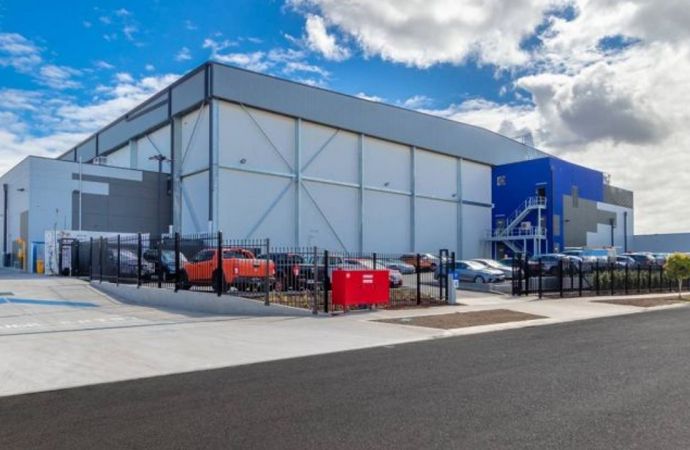Panelists at ATMO Virtual Trade Show debate future of EU’s F-Gas Regulation.

Arno Kaschl, Policy Analyst for the European Commission presenting at ATMO VTS
A representative of the European Commission (EC), which is in the process of preparing a proposed revision to the European Union’s F-Gas Regulation, was largely noncommittal on the direction it is taking, in a recent online policy panel discussion.
But other stakeholders issued calls for a more ambitious regulation during the discussion, which took place March 30 as part of the ATMO Virtual Trade Show (VTS) on natural refrigerant technologies. ATMO VTS was organized by shecco, publisher of this website.
Arno Kaschl, Policy Analyst for the Brussels, Belgium-based EC, noted that the EC will look closely at where more can be done. “Technology has moved on, and there has been a lot of change, so there may be room for growth,” he said.
The EC is working with Öko-Recherche, a German environmental research consultancy, on analyzing the current version of the F-Gas Regulation. Öko-Recherche is also working on policy options to offer to the EC, said another panelist, Barbara Gschrey, General Manager of Öko-Recherche.
The Commission’s plan is to submit a proposal by the end of the year, according to Kaschl. Then the proposal would go through the normal legislative process between the European Parliament and Council, possibly delivering a new regulation by 2023.
Kaschl added that in the review process, the EC would have to consider whether the regulation is effective, efficient, coherent, relevant, and has an EU added value. On top of this, the EC would have to determine whether it is fit for the future, meaning that it helps meet the EU’s 2030 climate target and its 2050 climate neutrality goals, as well as being in line with the Montreal Protocol’s Kigali Amendment.
Fast action needed
Tim Grabiel, Environmental Lawyer for the U.K-based Environmental Investigation Agency (EIA), who also spoke on the panel, stressed the need for fast action on f-gases before the world reach irreversible tipping points in environmental damage.
Grabiel noted that not only are f-gases contributing to climate change directly, but the manufacturing process for these refrigerants also release large amounts of by-product emissions, HFC-23 in particular.
A more ambitious f-gas regulation would, according to Grabiel, help to restore international EU leadership on this matter. This sentiment was echoed by fellow panelist Andreas Meier, Managing Director for German OEM Teko, a major producer of natural refrigerant systems; he sees the potential for the EU to create jobs and be a leader in natural refrigerant technology.
Meier believes that a clear roadmap for the HVAC&R market in the form of a strong f-gas regulation would help the industry grow, as low-GWP solutions are already available for all refrigeration types.
Technology has moved on, and there has been a lot of change, so there may be room for growth.” - Arno Kaschl, European Commission
Related stories



